Yinlu Wang
Performance Analysis of OAMP Detection for ODDM Modulation in Satellite Communications
Jun 24, 2025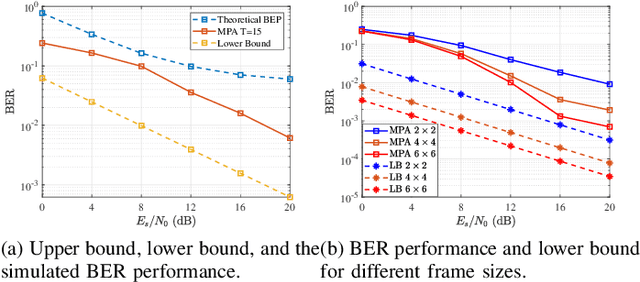

Abstract:Towards future 6G wireless networks, low earth orbit (LEO) satellites have been widely considered as a promising component to enhance the terrestrial communications. To ensure the link reliability of high-mobility satellite communication scenarios, the emerging orthogonal delay-Doppler division multiplexing (ODDM) modulation has attracted significant research attention. In this paper, we study the diversity gain achieved by ODDM modulation along with the mathematical analysis and numerical simulations. Additionally, we propose an orthogonal approximate message passing (OAMP) algorithm based detector to harvest the diversity gain promised by ODDM modulation. By operating the linear and non-linear estimator iteratively, the orthogonal approximate message passing (OAMP) detector can utilize the sparsity of the effective delay-Doppler (DD) domain channel and extract the full diversity. Simulation results reveal the relationship between diversity gain and system parameters, and demonstrate that our proposed detector can achieve better performance than the conventional message passing methods with significantly reduced complexity.
Online Resource Allocation for Semantic-Aware Edge Computing Systems
Sep 25, 2023Abstract:In this paper, we propose a semantic-aware joint communication and computation resource allocation framework for MEC systems. In the considered system, random tasks arrive at each terminal device (TD), which needs to be computed locally or offloaded to the MEC server. To further release the transmission burden, each TD sends the small-size extracted semantic information of tasks to the server instead of the original large-size raw data. An optimization problem of joint semanticaware division factor, communication and computation resource management is formulated. The problem aims to minimize the energy consumption of the whole system, while satisfying longterm delay and processing rate constraints. To solve this problem, an online low-complexity algorithm is proposed. In particular, Lyapunov optimization is utilized to decompose the original coupled long-term problem into a series of decoupled deterministic problems without requiring the realizations of future task arrivals and channel gains. Then, the block coordinate descent method and successive convex approximation algorithm are adopted to solve the current time slot deterministic problem by observing the current system states. Moreover, the closed-form optimal solution of each optimization variable is provided. Simulation results show that the proposed algorithm yields up to 41.8% energy reduction compared to its counterpart without semantic-aware allocation.
Resource Allocation for Semantic-Aware Mobile Edge Computing Systems
Sep 21, 2023
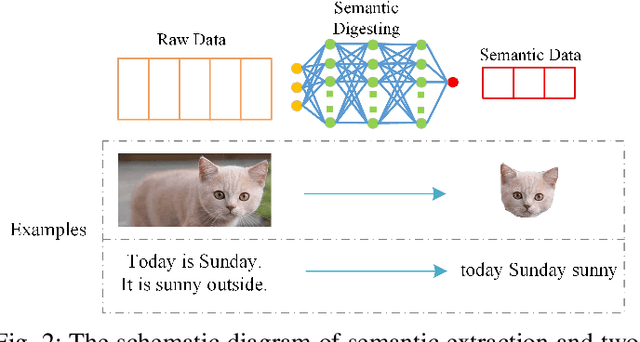
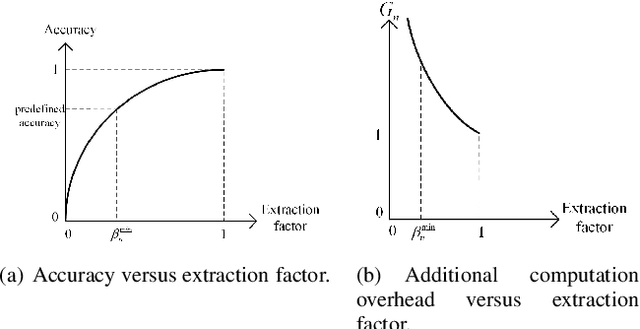
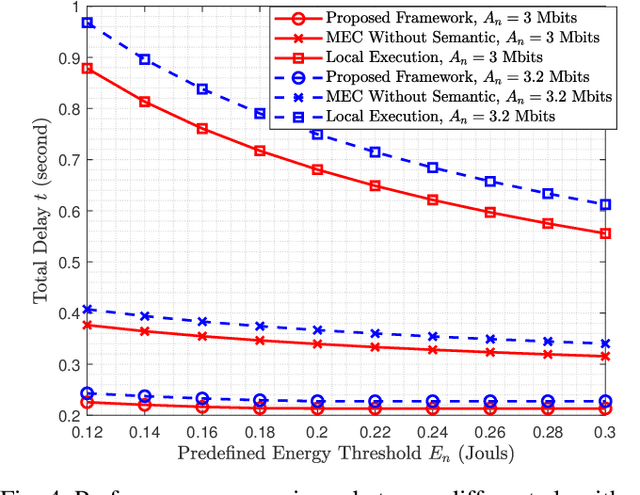
Abstract:In this paper, a semantic-aware joint communication and computation resource allocation framework is proposed for mobile edge computing (MEC) systems. In the considered system, each terminal device (TD) has a computation task, which needs to be executed by offloading to the MEC server. To further decrease the transmission burden, each TD sends the small-size extracted semantic information of tasks to the server instead of the large-size raw data. An optimization problem of joint semantic-aware division factor, communication and computation resource management is formulated. The problem aims to minimize the maximum execution delay of all TDs while satisfying energy consumption constraints. The original non-convex problem is transformed into a convex one based on the geometric programming and the optimal solution is obtained by the alternating optimization algorithm. Moreover, the closed-form optimal solution of the semantic extraction factor is derived. Simulation results show that the proposed algorithm yields up to 37.10% delay reduction compared with the benchmark algorithm without semantic-aware allocation. Furthermore, small semantic extraction factors are preferred in the case of large task sizes and poor channel conditions.
Channel Tracking for RIS-aided mmWave Communications Under High Mobility Scenarios
Nov 07, 2022
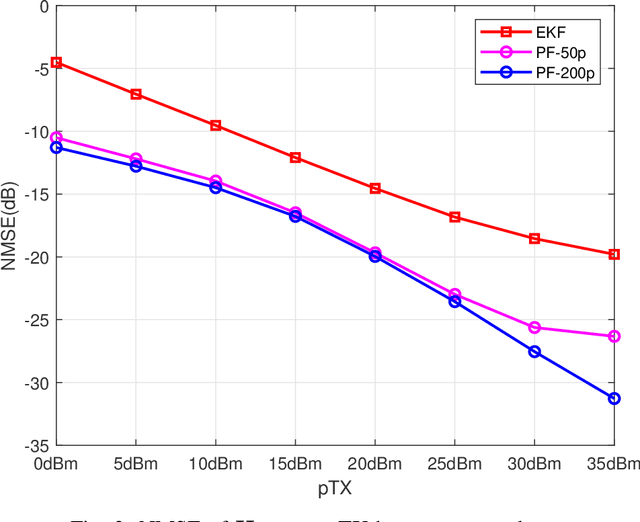
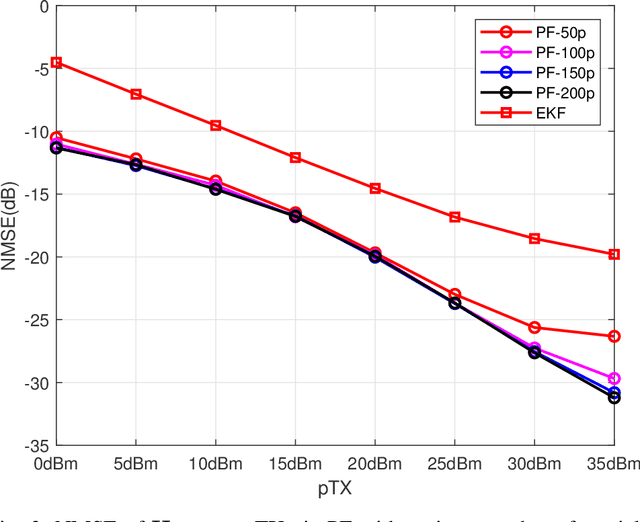
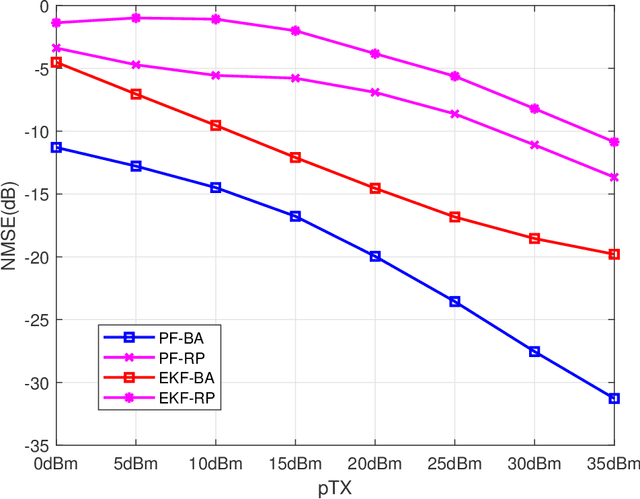
Abstract:The emerging reconfigurable intelligent surface (RIS) technology is promising for applications in the millimeter wave (mmWave) communication systems to effectively compensate for propagation loss or tackle the blockage issue. Considering the high mobility of users in realistic scenarios, it is essential to adjust the phase shifts in real time to align the beam towards the mobile users, which requires to frequently estimate the channel state information. Hence, it is imperative to design efficient channel tracking schemes to avoid the complex channel estimation procedure. In this paper, we develop a novel channel tracking scheme with two advantages over conventional schemes. First, our tracking scheme is based on the cascaded angles at the RIS instead of the accurate angle values, which is more practical. Second, it can be employed under a more general setting where the noise can be non-Gaussian. Simulation results show the high tracking accuracy of our proposed scheme, and validate the superiority to the existing EKF-based tracking scheme.
Optimization of RIS Configurations for Multiple-RIS-Aided mmWave Positioning Systems based on CRLB Analysis
Nov 28, 2021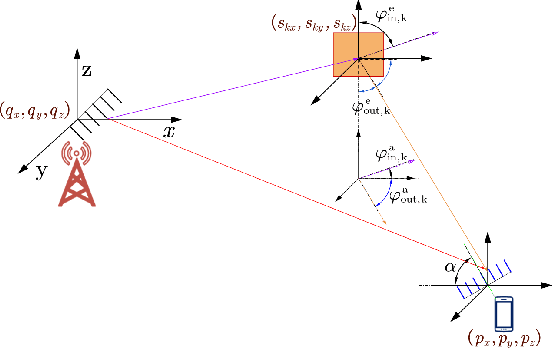
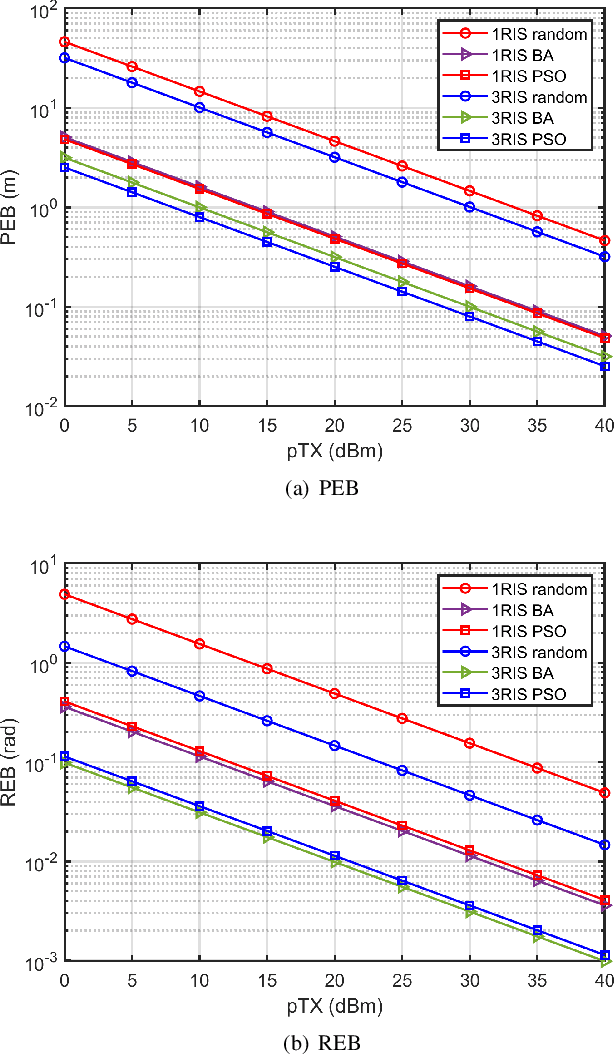
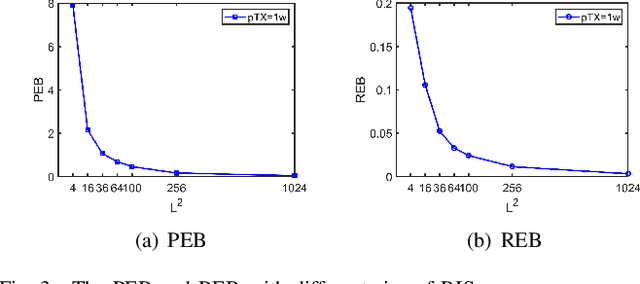
Abstract:Reconfigurable intelligent surface (RIS) is a promising technology for future millimeter-wave (mmWave) communication systems. However, its potential benefits of adopting RIS for high-precision positioning in mmWave systems are still less understood. In this paper, we study a multiple-RIS-aided mmWave positioning system and derive the Cram$\rm{\acute{e}}$r-Rao error bound. Based on the derived bound, we optimize the phase shift of the RISs by the particle swarm optimization (PSO) algorithm. Numerical results have demonstrated the advantages of using multiple RISs in enhancing the positioning accuracy in mmWave systems.
Energy Efficient Reconfigurable Intelligent Surface Enabled Mobile Edge Computing Networks with NOMA
Apr 30, 2021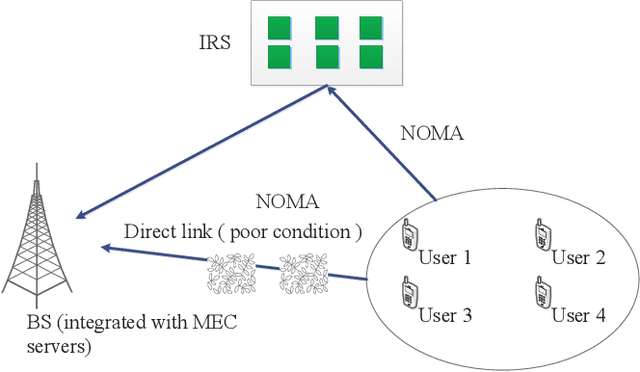
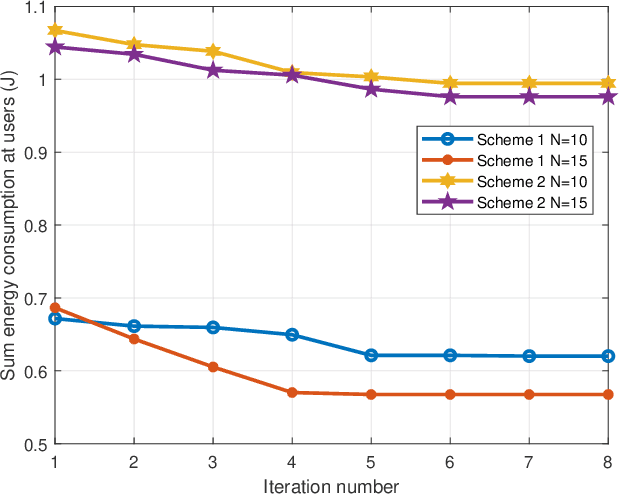
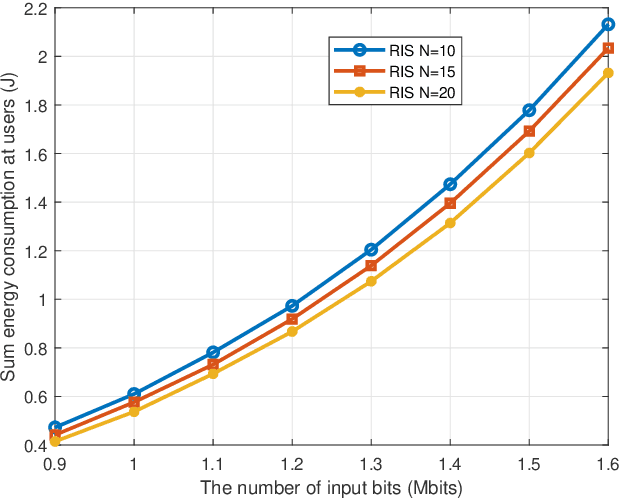
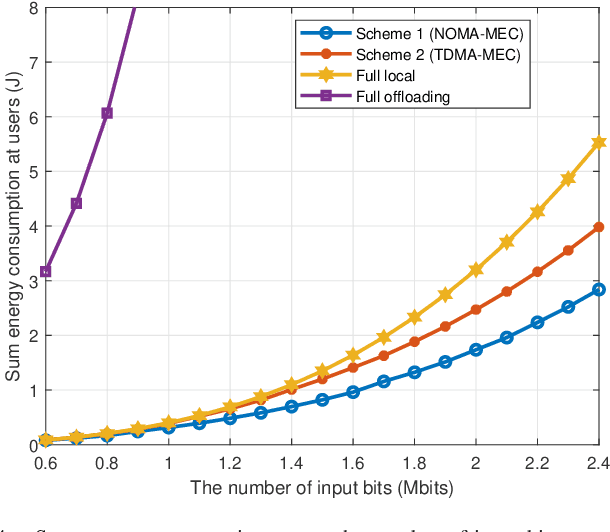
Abstract:Reconfigurable intelligent surface (RIS) has emerged as a promising technology for achieving high spectrum and energy efficiency in future wireless communication networks. In this paper, we investigate an RIS-aided single-cell multi-user mobile edge computing (MEC) system where an RIS is deployed to support the communication between a base station (BS) equipped with MEC servers and multiple single-antenna users. To utilize the scarce frequency resource efficiently, we assume that users communicate with BS based on a non-orthogonal multiple access (NOMA) protocol. Each user has a computation task which can be computed locally or partially/fully offloaded to the BS. We aim to minimize the sum energy consumption of all users by jointly optimizing the passive phase shifters, the size of transmission data, transmission rate, power control, transmission time and the decoding order. Since the resulting problem is non-convex, we use the block coordinate descent method to alternately optimize two separated subproblems. More specifically, we use the dual method to tackle a subproblem with given phase shift and obtain the closed-form solution; and then we utilize penalty method to solve another subproblem for given power control. Moreover, in order to demonstrate the effectiveness of our proposed algorithm, we propose three benchmark schemes: the time-division multiple access (TDMA)-MEC scheme, the full local computing scheme and the full offloading scheme. We use an alternating 1-D search method and the dual method that can solve the TDMA-based transmission problem well. Numerical results demonstrate that the proposed scheme can increase the energy efficiency and achieve significant performance gains over the three benchmark schemes.
 Add to Chrome
Add to Chrome Add to Firefox
Add to Firefox Add to Edge
Add to Edge